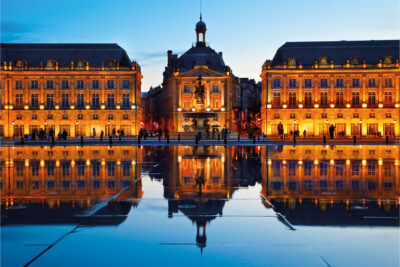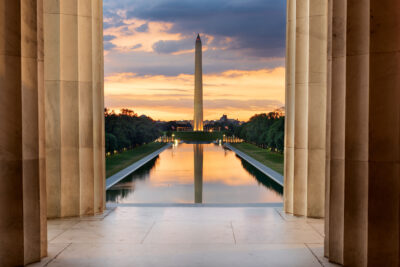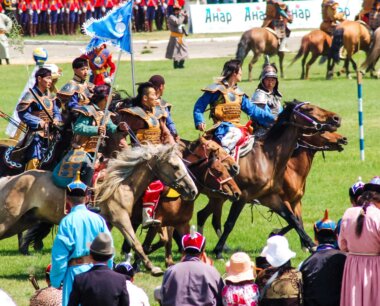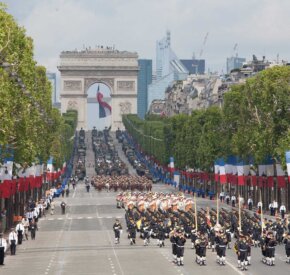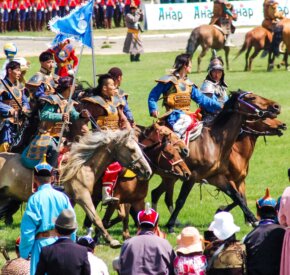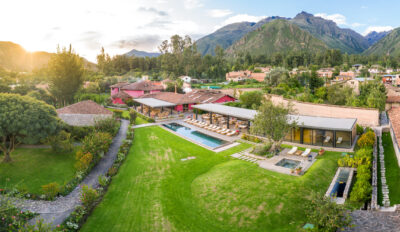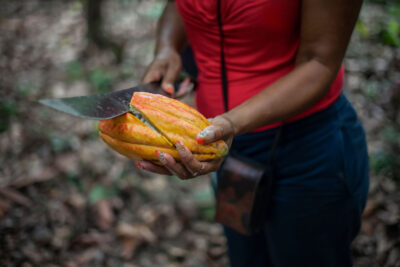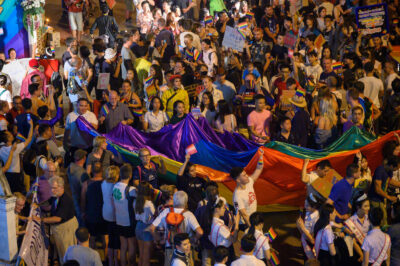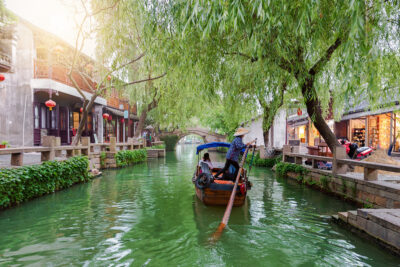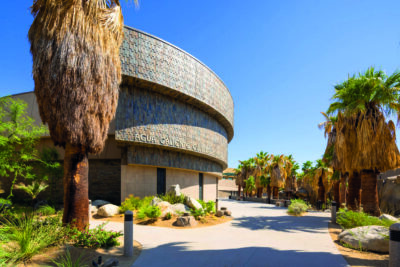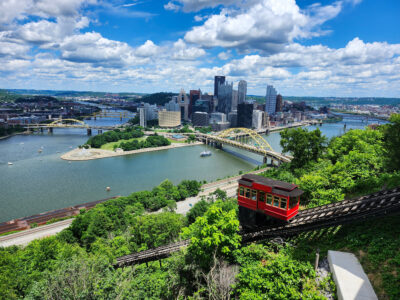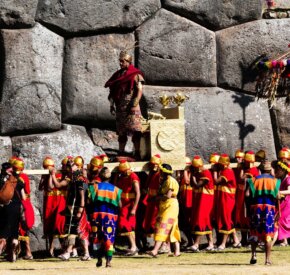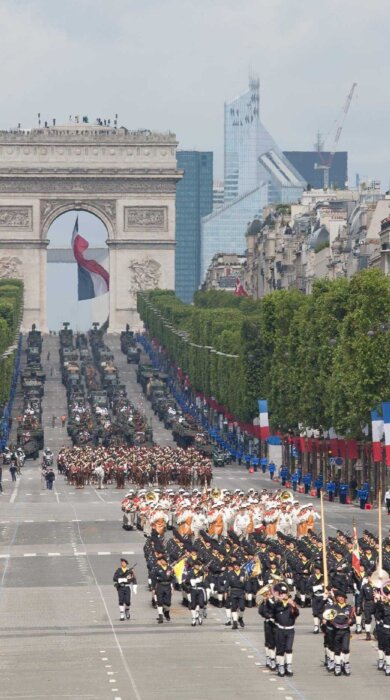
5 things to know about Bastille Day in France
France’s National Day celebrations take place on 14 July every year
Bastille Day – known as La Fete Nationale or Quatorze Juillet to the French – is France’s National Day, held on 14 July each year.
Planning on visiting France for the festivities? Here’s everything you need to know…
1. Its roots go back to 1789…
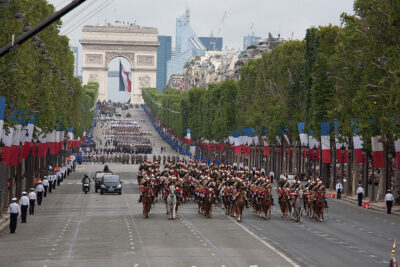
Back in 1789, King Louis XVI’s extravagant spending, coupled with a poor harvest, meant that France was facing bankruptcy. High taxes led to looting, strikes and riots, including one on 14 July 1789 which saw a mob attack Bastille, a former medieval prison near where Canal Saint-Martin meets the River Seine. The hordes planned to seize weapons and gunpowder and successfully released seven prisoners who’d been incarcerated without the right to a trial or to appeal. For some, Bastille Day commemorates the uprising at Bastille, which triggered the French Revolution. But while King Louis XVI’s powers diminished after the revolt, France remained a monarchy.
Read next: Return of Notre-Dame: 7 alternative cathedrals to see in France
2. …Or 1790
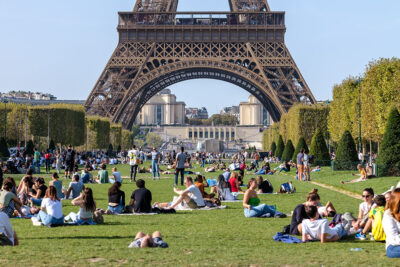
The first anniversary of the revolt at Bastille is known as Fete de la Federation, or Festival of the Federation. King Louis XVI vowed to endorse the new National Guard – formed after the fall of Bastille – as it paraded through Paris. A 24m arch was erected and military bands played drums and trumpets on Champs de Mars, where the Eiffel Tower is now, watched by crowds of 400,000 on wooden grandstand seating. For some, Bastille Day marks Festival of the Federation, which became a symbol of national unity.
3. It’s a national holiday
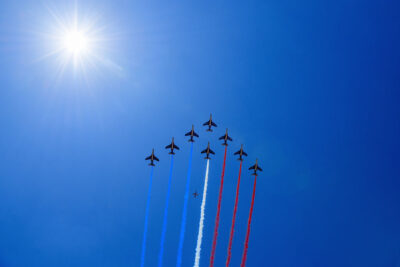
It wasn’t until 1880 that a law was passed to celebrate 14 July as France’s new national day – without making clear which year it referred to, 1789 or 1790. It’s been a public holiday ever since.
Read next: A first-time guide to Finistère, France
4. Bastille today
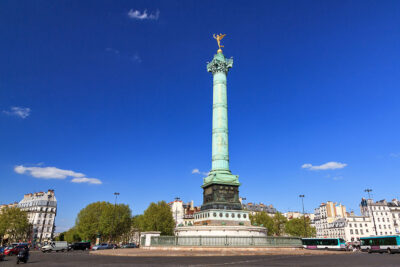
Bastille fortress was demolished after the revolt, and today there’s a square in its place. A pillar called July Column, which dates back to 1830, stands in the centre of Place de la Bastille.
Read next: A lasting Impression: An art-themed road trip across France
5. How to celebrate
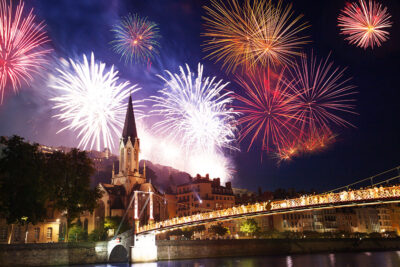
Bastille Day is celebrated across France and in former French colonies. Bals de pompiers – Firemen’s Balls – are held in fire station courtyards till the early hours. As well as food and drink stalls, live bands and DJs perform, people dance, toss inflatable balls in the air and sing La Marseillaise.
The biggest celebration takes place in Paris, with a military parade along the Champs-Elysees, flypasts of the French flags’ blue, white and red colours, and a free classical music concert at Champs de Mars.
But if you’re looking for an alternative place to celebrate, there will be military parades in cities such as Marseille, Lyon and Toulouse. Plus, once night falls, fireworks are let off across the country.







